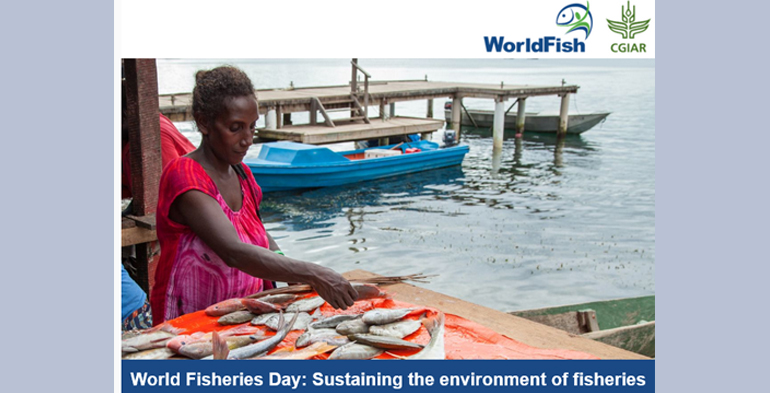
Agrilife24.com:World Fisheries Day on the 21st of November every year, let us take this time to think about the frequently underappreciated work of small-scale fisheries communities, particularly the fishers, processors and traders who gather aquatic foods from ponds, rivers, lakes and oceans all over the world.
In order to secure sustainable fisheries and healthy oceans in the face of the challenge posed by climate change, we collaborate with partners to bring shared prosperity through aquatic food systems by providing essential knowledge and innovations to those who need them most.
Roughly 90 percent of the fisheries sector's workforce comprises small-scale actors, half of whom are women. Through the Illuminating Hidden Harvests project, we work with partners to evaluate the contributions, impacts and challenges of small-scale fisheries internationally and bring them to light.
Fisheries remain a critical component of global food systems. The majority of aquatic foods consumed in a large portion of the developing world will continue to be supplied by small-scale fisheries in the coming decades, notwithstanding the expansion of aquaculture.
The wide variety of aquatic foods obtained from fisheries, such as seaweed, sea cucumbers, crustaceans and fish, contributes to robust, sustainable and diversified diets as well as revenue streams from the accompanying trading and processing activities across the supply chain.
Aquatic foods provide over 3 billion people with micronutrient-rich diets and sustain the livelihoods of over 120 million people. They rank among the most traded commodities in the world. The production of capture fisheries worldwide in 2020 was 90.3 million tons, valued at an estimated $141 billion, with 78.8 million tons coming from marine waters and 11.5 million tons coming from inland waters.
For billions of people worldwide, coastal and inland fisheries are essential to their livelihoods, access to food and nutrition. They are, however, the ones most impacted by the effects of a changing climate. From the migration of fishing stocks due to an increase in water temperature and change in salinity of their habitats to the changes in sea levels inundating coastal regions, climate change will have an adverse effect on those who depend on coastal and inland fisheries.
A WorldFish delegation has just returned from the UN Climate Change Conference (COP27) at Sharm el-Sheikh, Egypt where we showcased our research and innovations on transforming climate-resilient aquatic food systems for shared prosperity. WorldFish hosted and participated in excess of 20 side events bringing solutions and urging investments in aquatic food systems to deliver a triple win for people, planet and climate.
The Food and Agriculture Organization of the United Nations (FAO) has also declared this year the International Year of Artisanal Fisheries and Aquaculture (IYAFA). The purpose of IYAFA is to honor the millions of women and men who work in artisanal fisheries and aquaculture, as well as the workers in the broader aquatic food systems, who every day feed billions of people around the world with wholesome, nutritious food, making a significant contribution to the UN Sustainable Development Goal of a world without hunger. WorldFish has contributed significantly to IYAFA activities throughout the year.
In conjunction with World Fisheries Day, we urge you to learn more about fisheries and aquatic foods as an integral component of the world's food systems and to check out some of the resources listed below on research insights, solutions and innovations for enhancing the productivity, resilience and sustainability of small-scale fisheries in a climate crisis.





















